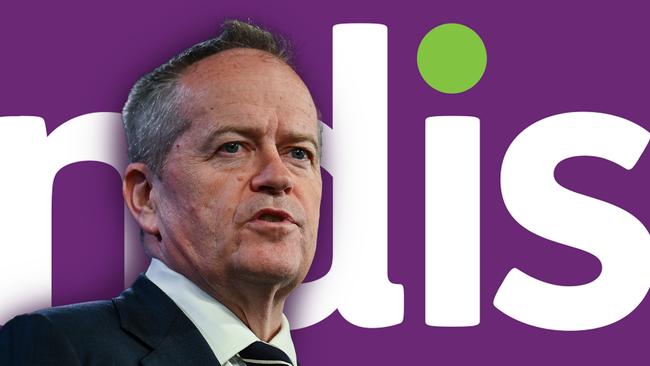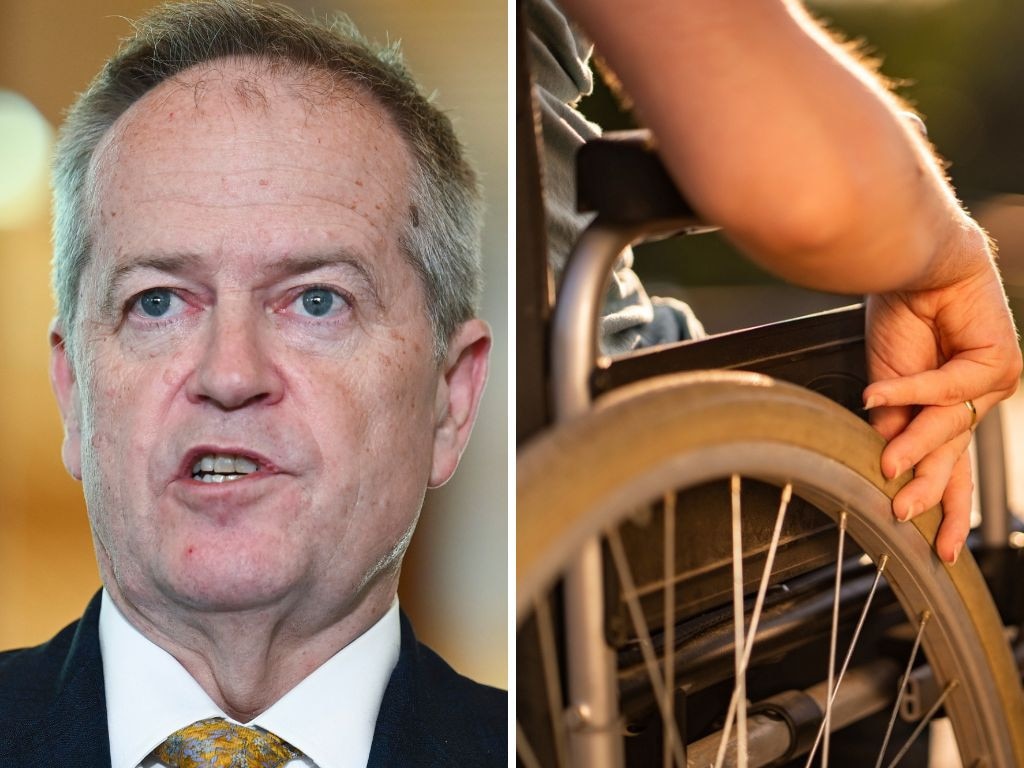
There is nobody more supportive of NDIS Minister Bill Shorten’s quest to rein in the ballooning scheme than my family.
But when I read the minister’s comments this week that he was “extremely proud” that $1bn has been shaved from the NDIS as a result of reforms that rein in spending, more tightly regulate providers and tighten eligibility, I have to admit that I felt rather sick.
Just last week, my 12-year-old niece received a devastating blow. She cannot walk or talk and is PEG-fed through a tube in her stomach. She relies on a blended food formula, and the only food she can tolerate is very expensive.
My sister has to import it from the US and it costs $28,000 a year. She has tried absolutely everything else, and my niece’s severe disabilities mean she is intolerant of the alternatives.
Prior to being on her current food, she vomited constantly after eating and never was able to properly go to the toilet.
The NDIS – without so much as a phone call – has informed my sister they will only fund my niece’s food to a maximum of about $8000 year, and in their wisdom decided the powdered milk products available in Australia should be suitable, ignoring copious evidence from my niece’s dietitians that they are not.
My sister and her husband, who are not wealthy, must now somehow come up with $20,000 a year to fund their daughter’s existence because they have no alternative.
That decision followed a similarly idiotic decision in relation to aunt’s NDIS package.
My aunt Vicki has severe cerebral palsy and intellectual disabilities.
The NDIS, on the papers, misunderstood the nature of her disability and recently refused her extra in-home supports because they deemed that her primary disability to be intellectual.
This appears to be simply an incompetent decision by a probably poorly qualified worker who didn’t properly read Vicki’s case, but it is indicative of the way the NDIS is becoming a blunt tool rather than operating as it was always designed to, that is to provide customised, personalised support for people with complex needs.
How can that happen when these decisions are made based on paperwork by people who display a total misunderstanding of the nature of the person’s circumstances and their processes do not allow them to bother to gain a proper picture?
This is what I always feared would come to pass as a result of the federal government’s willingness to allow a very wide range of disabilities to be funded within the NDIS.
The rorting, commercial opportunism and welfare mentality of sometimes undeserving applicants that the NDIS’s largesse has spawned is simply sickening, and evidence is growing that it is those with profound disabilities – the neediest who have no other option but this very important safety net – are also bearing the brunt of the government’s appalling failure to properly regulate and manage the scheme and having critical funding items slashed.
State governments carry just as much blame for the now unsustainably bloated NDIS through their unforgivable actions in vacating the field in supporting those with milder disabilities, such as providing adequate support for children with mild and moderate autism in schools, which forced those families to flock to the NDIS.
Speaking to those in the sector, my family’s experience is not isolated.
Lawyer Belinda Kochanowska, principal solicitor of Intrepidus Law who specialises in running appeals against funding decisions for NDIS participants, says there is no doubt that Shorten’s reforms, passed in legislation, are heralding a “cookie cutter” approach in which the NDIS is no longer providing individualised and tailored support to profoundly disabled people, and is instead moving in a philosophical direction that favours the old block funding approach, which makes it easier for governments to predict costs in an accounting sense – exactly in line with Mr Shorten’s push to curb NDIS annual growth by 8 per cent from 2026.
Kochanowska says she is seeing many people with profound disability being hit by cuts to their packages.
“What we are now heading towards is more of a cookie-cutter approach where we put people in accounting boxes,” Kochanowska says.
“Those with the most extreme functional impairments seem to be at the moment falling through the cracks in the scheme, because they are the ones that really need that individualised tailored approach.”
If what comes to pass as a result of these reforms – which are now necessary as a result of years of governmental failure to ensure this scheme was not jeopardised in terms of benefiting those it was always designed for – is effective punishment for the profoundly disabled, that is nothing to be proud of at all. It’s actually cruel.






With two family members living with profound disability, the way the NDIS has been rorted and mismanaged has been a source of anger and trepidation for me for years.